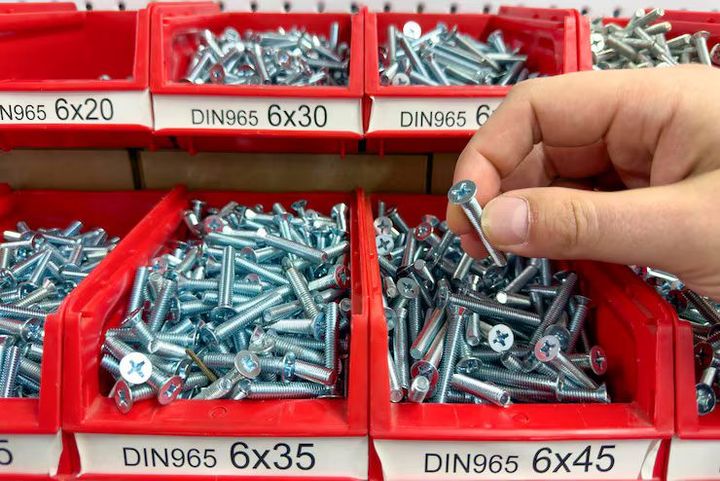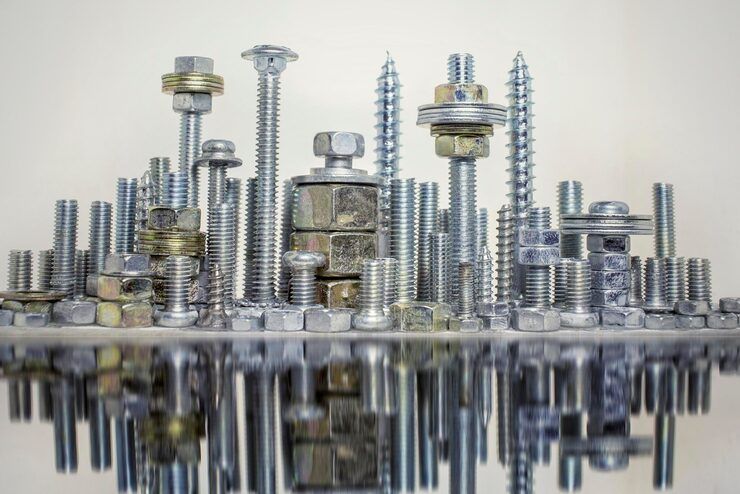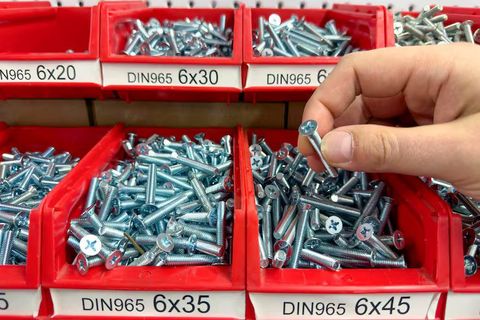
A Complete Guide for the Best Screw and Bolt Supplier Options
Screws and bolts are essential fasteners used in almost every industry, from construction and manufacturing to electronics, furniture production, automotive work, and home improvement. Because these fasteners come in many materials, sizes, strengths, and standards, specialized suppliers exist to provide reliable, standardized, and industry-ready products.
Screw and bolt suppliers play a key role in the supply chain. They help buyers access:

-
Standardised fasteners that follow industry norms
-
Specialty or custom fasteners for unique applications
-
Bulk quantities for industrial needs
-
Verified materials such as stainless steel, carbon steel, brass, and alloys
These suppliers also help ensure that the products delivered meet technical specifications such as tensile strength, corrosion resistance, thread standards, and load capacity. The need for organized and dependable sourcing has led to a wide network of suppliers around the world, serving both businesses and individual buyers.
Importance – Why Screw and Bolt Suppliers Matter Today
Reliable fasteners hold together buildings, machines, vehicles, electronics, and everyday products. The quality and accuracy of screws and bolts directly affect safety, durability, and performance. This makes suppliers important for several reasons:
Ensures Safety in Industrial and Construction Applications
Bolts and screws are essential in:
-
Steel structures
-
Machinery assembly
-
Automotive components
-
Furniture joints
-
Electrical panels
High-quality sourcing prevents structural weakness and equipment failure.
Supports Manufacturing Efficiency
Manufacturers rely on suppliers to deliver large quantities consistently. Without timely supplies, production delays may occur. Suppliers help:
-
Maintain steady inventory
-
Provide standardized sizes
-
Offer custom specifications when needed
Helps Small Businesses and Contractors
Local suppliers often support:
-
Repair shops
-
Furniture makers
-
Construction workers
-
Maintenance teams
They provide accessible options without requiring large orders.
Offers Material and Grade Variations
Different environments require different materials:
-
Stainless steel for moisture-exposed areas
-
High-tensile bolts for heavy machinery
-
Brass for electrical applications
-
Zinc-coated fasteners for general use
Suppliers ensure availability of certified and correctly graded options.
Improves Cost Planning
Bulk supply options, clear pricing, and standardized catalogues help businesses plan their budget efficiently.
Recent Updates – Trends and Developments in Fastener Supply (2024–2025)
The screw and bolt supply industry continues to evolve as manufacturing, construction, and technology industries grow. Several notable developments have emerged:
Digital Catalogues and E-Commerce Growth (2024)
More suppliers now use online catalogs, digital quotes, and automated ordering, allowing buyers to compare:
-
Materials
-
Sizes
-
Thread types
-
Prices
-
Certifications
This shift helps both small and large buyers make informed choices.
Increased Focus on High-Tensile and Specialty Fasteners
With rising demand in infrastructure and machinery projects in 2024–2025, suppliers now offer:
-
High-strength bolts
-
Corrosion-resistant grades
-
Temperature-resistant fasteners
-
Custom-machined parts
Sustainability Trends
Many suppliers have adopted:
-
Eco-friendly packaging
-
Recyclable materials
-
Energy-efficient production
Manufacturers have also started publishing sustainability reports to highlight responsible sourcing.
ISO and ASTM Certifications Becoming More Common
To meet global expectations and import/export standards, suppliers increasingly provide:
-
ISO 898
-
ISO 3506
-
ASTM A193
-
ASTM A307
These certifications are often highlighted in product catalogs to assure buyers.
Smart Inventory Management Tools
Warehouses introduced digital tracking tools in 2024, enabling faster processing and reducing stock errors.
Rising Demand for Corrosion-Resistant and Heat-Resistant Fasteners
Growth in coastal development, renewable energy projects, and machinery upgrades resulted in higher demand for:
-
Stainless steel 304/316
-
Alloy steel
-
Hot-dip galvanized bolts
Laws or Policies – Regulations Influencing Screw and Bolt Supply
Screw and bolt suppliers must follow technical, safety, and trade regulations. These rules ensure product reliability and safe use.
Industry Standards
Fasteners are often required to meet standards including:
-
ISO Standards for thread sizes, tensile strength, and materials
-
DIN Standards for metric fasteners
-
ASTM Standards for construction and industrial applications
-
BS Standards for British-grade fasteners
Suppliers need to maintain documents showing compliance.
Import and Export Regulations
Depending on the country, tariffs and certifications may apply when sourcing:
-
Stainless steel bolts
-
Specialty alloy fasteners
-
Custom-machined parts
Compliance ensures smooth logistics.
Quality Certification Requirements
Suppliers commonly follow:
-
ISO 9001 Quality Management
-
Material test reports (MTRs)
-
RoHS compliance for electronics
These requirements help industries verify material authenticity.
Workplace and Safety Standards
Warehouses must follow:
-
Safe storage practices
-
Proper labeling of fastener grades
-
Handling and lifting safety rules
These reduce risk for workers and transport teams.
Environmental Regulations
Some regions also regulate:
-
Metal waste disposal
-
Recycling of packaging
-
Use of hazardous coatings
Suppliers may adopt eco-friendly alternatives to stay compliant.
Tools and Resources – Helpful Platforms for Fastener Sourcing
Buyers can use several tools and resources to compare suppliers and verify technical details.
Supplier Directories
-
IndiaMART – Indian industrial supplier listings
-
Alibaba – Global sourcing for bulk fasteners
-
TradeIndia – Manufacturer and supplier database
-
ThomasNet – North American industrial supplier directory
Technical Tools
-
Bolt Depot Chart Tools – Thread size charts, grade guides
-
Engineers Edge – Strength calculators
-
Fastenal Online Tools – Material comparison and size guides
Standard Reference Websites
-
ISO.org – Standard definitions
-
ASTM.org – Material and strength standards
-
DIN Standards Database – Metric fastener information
Inventory and Procurement Software
-
Zoho Inventory
-
SAP Procurement
-
TallyPrime for small businesses
These help buyers track usage and manage orders efficiently.
Table: Common Screw and Bolt Types and Their Applications
| Fastener Type | Material Options | Common Use Cases |
|---|---|---|
| Hex Bolts | Stainless steel, alloy steel, zinc-coated | Machinery, construction |
| Machine Screws | Stainless steel, brass | Appliances, electronics |
| Wood Screws | Steel, brass | Furniture, carpentry |
| Anchor Bolts | Carbon steel, galvanized | Construction, foundations |
| Socket Head Screws | Alloy steel, stainless steel | Precision machines |
| Self-Tapping Screws | Steel, stainless steel | Metal sheets, plastics |
FAQs – Clear and Accurate Answers
1. What should I look for in a screw and bolt supplier?
Look for suppliers offering certified materials, clear specifications, a wide product range, and consistent delivery. Checking customer reviews and technical documentation also helps.
2. Are certified fasteners important?
Yes. Certifications such as ISO or ASTM ensure the fasteners meet strength, material, and safety requirements, which is essential for industrial and construction applications.
3. Can suppliers provide custom-made fasteners?
Many suppliers offer custom machining or special fasteners based on drawings or specifications. Availability may vary depending on equipment and material options.
4. What materials are best for corrosion resistance?
Stainless steel 304 and 316, galvanized steel, and certain alloy coatings are commonly used for corrosion resistance in outdoor or moisture-prone environments.
5. How can businesses manage fastener inventory efficiently?
Using inventory software, bulk ordering, and regular audits helps reduce shortages or overstocking. Many suppliers also offer scheduled delivery programs.
Final Thoughts
Choosing the right screw and bolt supplier is essential for safe, efficient, and durable project outcomes. With many options available, understanding materials, specifications, certifications, and sourcing tools helps buyers make informed decisions. Recent technological improvements, digital platforms, and updated industry standards continue to make fastener procurement more accessible and reliable. By comparing suppliers carefully and using available resources, businesses and individuals can select options that best match their project requirements.










